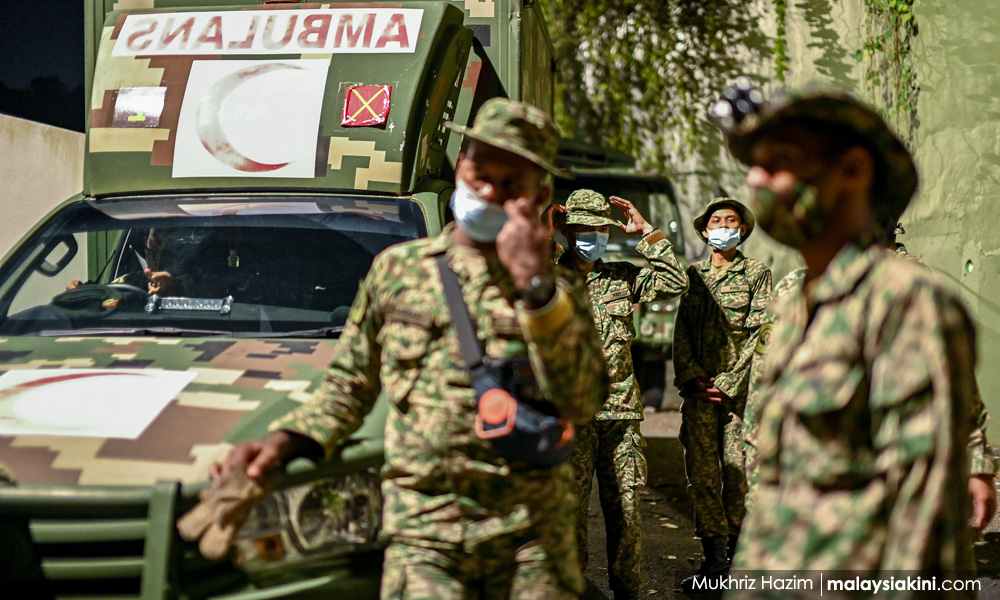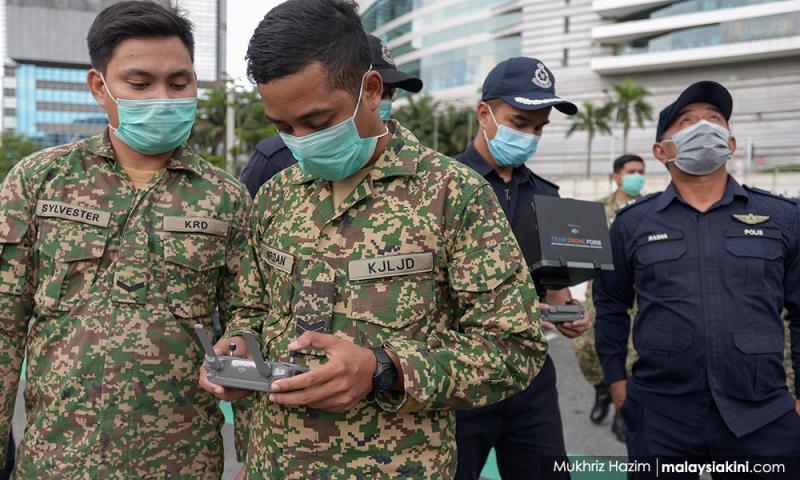ADUN SPEAKS | Institutional racism in armed forces recruitment
ADUN SPEAKS | It must be a joke to suggest the formation of a task force will be able to get to the roots of the problem as to why there are few non-Malays in the Malaysian armed forces (Mindef).
There is no need to form the task force to unearth the mysterious reasons that prevent non-Malays from joining the armed forces.
Reasons such as lack of promotional prospects and other reasons can be given.
But the presence of the “elephant” in the room seems to be missed.
This is none other than the pervasive and debilitating factor of institutional racism.
Institutional racism in the form of special rights for Malays manifested in government policies over the last few decades is the main reason why there is a small intake of non-Malays in the armed forces.
It is not just the armed forces alone but the entire Malaysian public service.
Even if there are opportunities for non-Malays to join the armed forces or the civil service, the notion that things are stacked up against them in the form of institutional racism prevents their entry.
Sensitive subject matter
What is the use of a task force when the problem is so obvious and blatant?
Even if a task force is set up, I am sure that it might not touch on the very sensitive subject matter of institutional racism in public institutions in general and the armed forces in particular.
I am sure that some very senior officers, both Malays and non-Malays are fully aware of the problem, but for obvious reasons, they might not go public on this matter.
When I mentioned the phenomenon of institutional racism in the armed forces some months back, a high ranking non-Malay officer refuted my argument about the presence of institutional racism in the armed forces.

When I mention the concept of institutional racism, I don’t mean there is racial antagonism among members of the armed forces.
This is not true at all; in fact, the level of integration and camaraderie is high among the different ethnic members of the armed forces.
I would even venture to say that integration and good relationship among the different members of the country’s fighting force are high in comparison with other public institutions.
However, the armed forces is not an independent entity but has to operate within the narrow confines of government policies on giving primacy to the Malays.
Long-ingrained policies
These are the policies that in the long run persuaded the non-Malays from joining the armed forces as well as other agencies such as the police.
The question is: how do you go about dismantling institutional racism without of course going against the long-ingrained policies of the government that derives its power and legitimacy from race and religion?
The armed forces themselves, whatever the good intention, are not in a position to rectify the imbalance in the skewed recruitment and promotion of the non-Malays.
A task force would be a feeble and ineffective approach to resolve the problem of the lack of non-Malays in the armed forces.
It would have come by way of political commitment on the part of the government to remove unjust policies and laws to pave the way for fairer treatment of non-Malays in the public service.
Even if the armed forces are prepared to open the services for more balanced recruitment, will the government of the day allow this?
Let us not waste time by arguing about the need for a task force when the prevailing political atmosphere is hardly conducive to more progressive thinking on the recruitment of non-Malays in the armed forces.
P RAMASAMY is Perai assemblyperson and Penang deputy chief minister II.
RM12.50 / month
- Unlimited access to award-winning journalism
- Comment and share your opinions on all our articles
- Gift interesting stories to your friends
- Tax deductable
